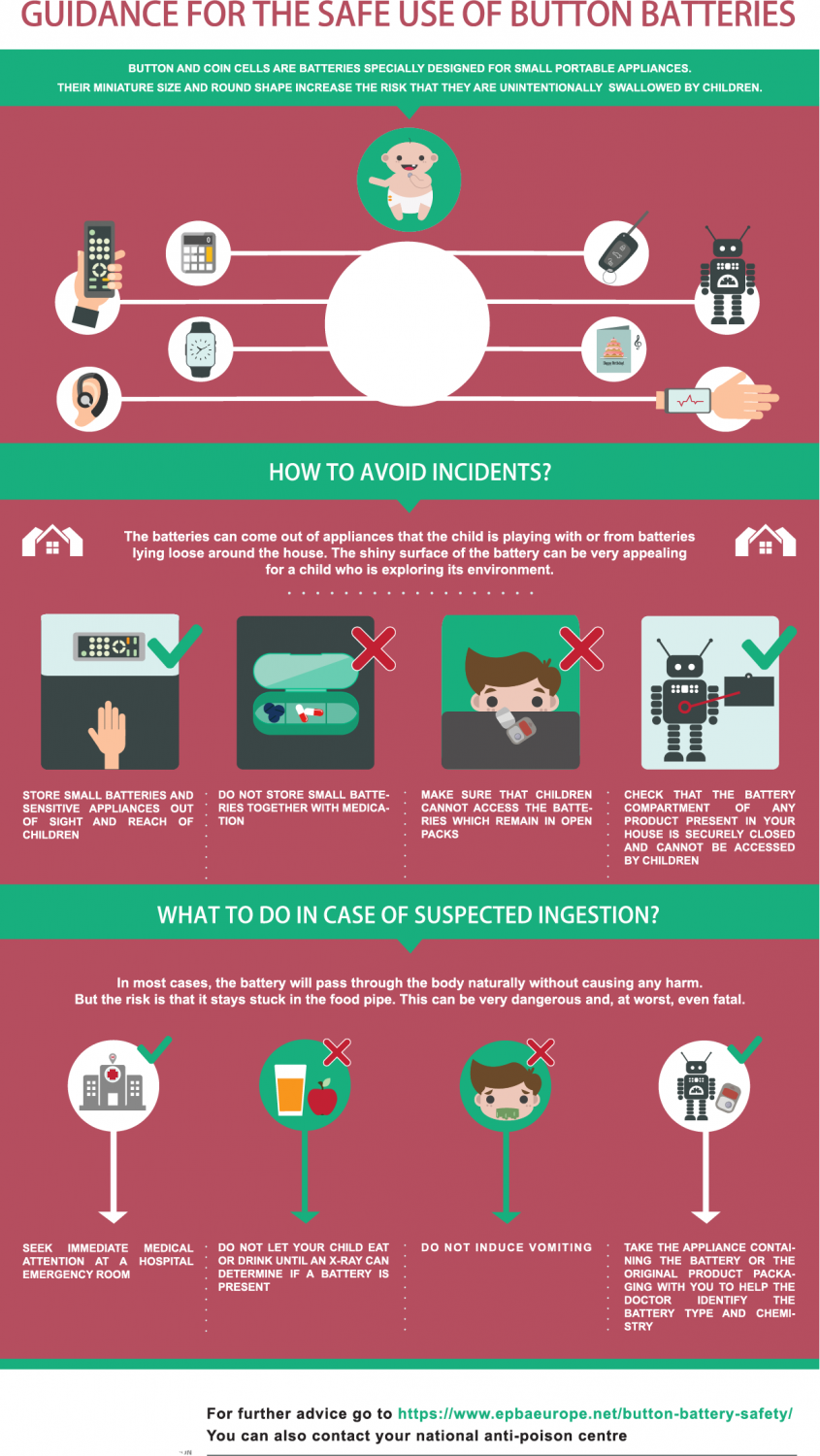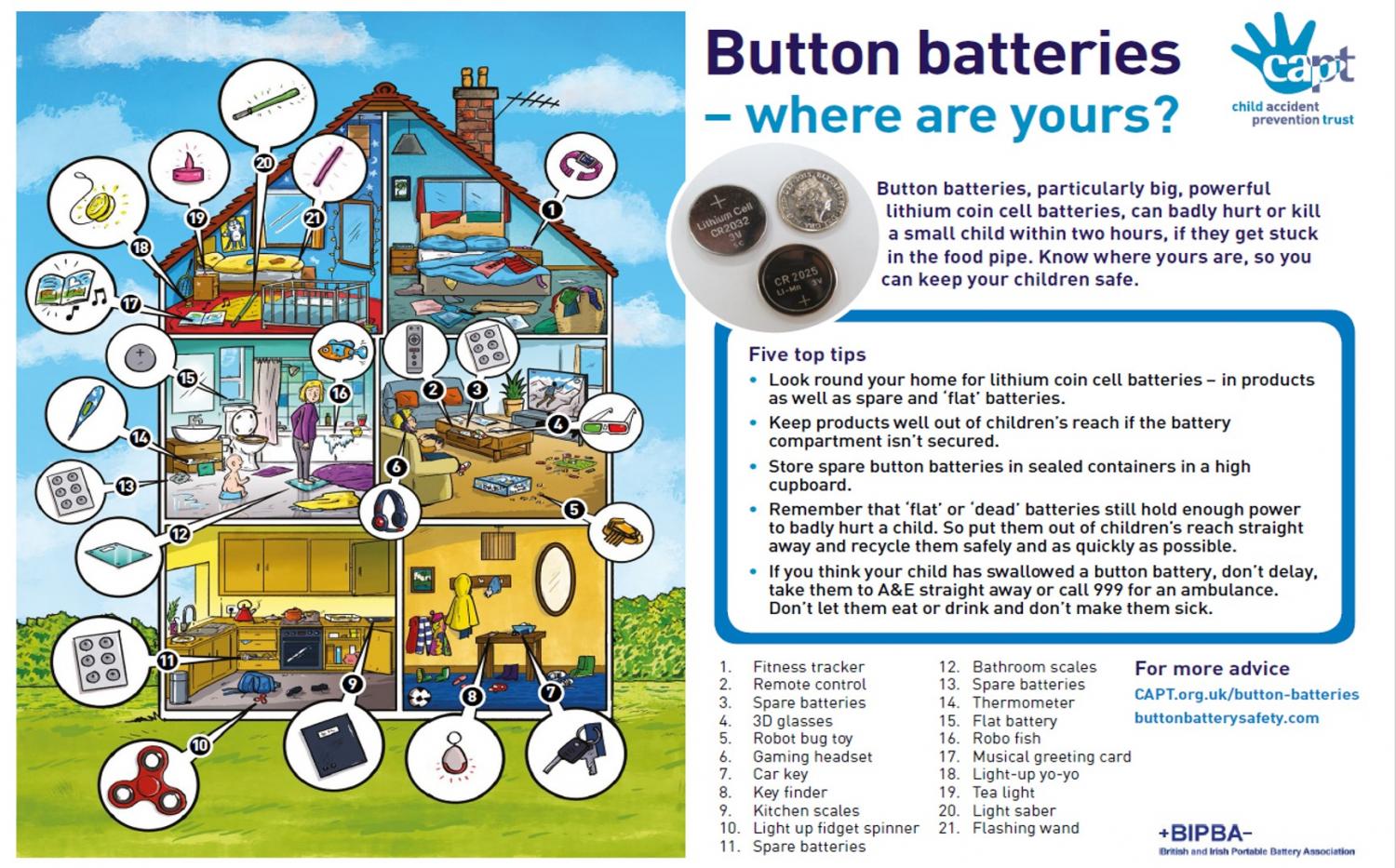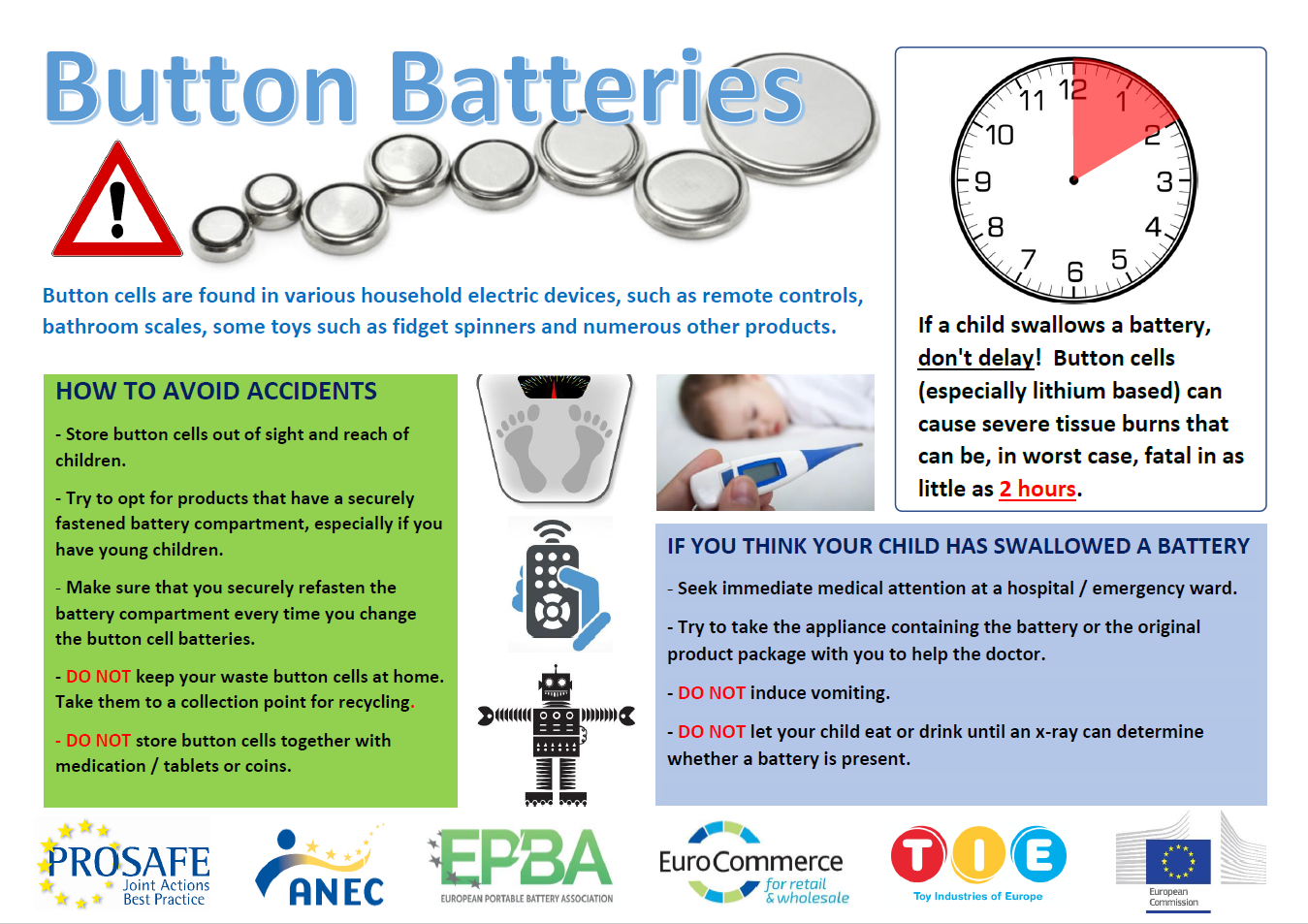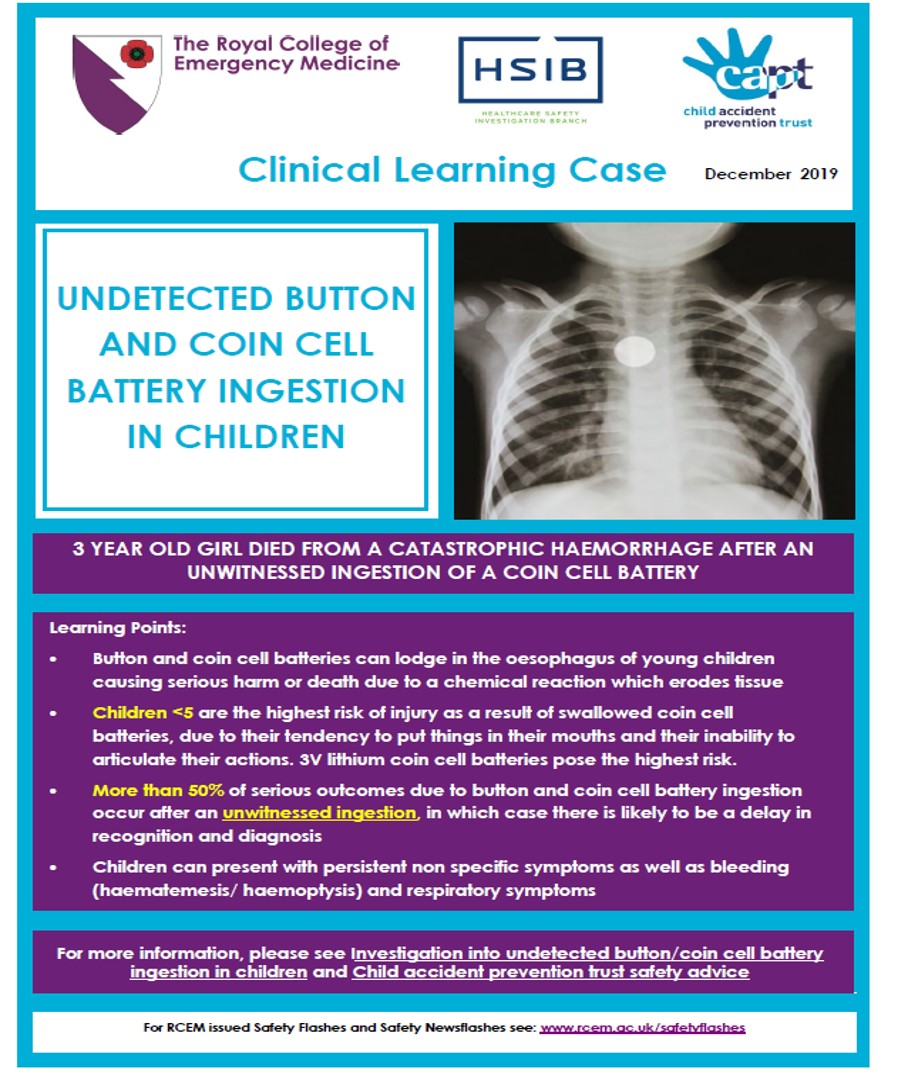Resources
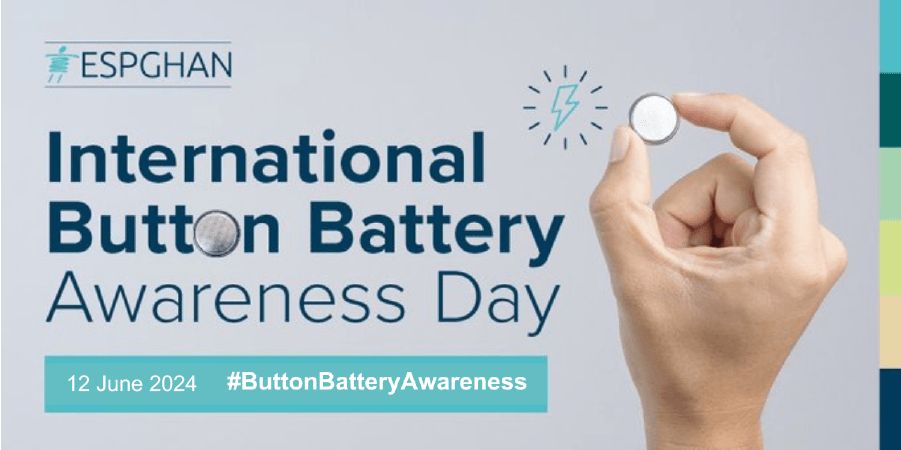
12 June: International Button Battery Awareness Day
On 12 June 2024, the European Society for Paediatric Gastroenterology, Hepatology and Nutrition (ESPGHAN) and the European Portable Battery Association (EPBA) collaborated for the third edition of the International Button Battery Awareness Day. The goal was to raise extra awareness and provide essential information and guidelines to families, educators, caregivers, healthcare professionals, and policymakers on preventing button battery ingestion and responding if it occurs.
ESPGHAN and EPBA are urging authorities, healthcare providers, and policymakers to further drive awareness and understanding of button battery ingestion in children and deliver effective prevention strategies to ensure early diagnosis and save young lives.
You will find our Manifesto, Infographic, Q&A brochure, and Batteries Checklist here.
EPBA Statement on Child Safety and Lithium Coin Cell Batteries
The European Portable Battery Association (EPBA) has reiterated its dedication to safeguarding children from the hazards of ingesting lithium coin cell batteries. In a comprehensive statement, the EPBA appealed to the European Commission to support strict standards for ensuring the safety of battery packaging.
Battery safety, in particular protecting children against button and coin battery ingestion, is one of the utmost priorities of EPBA’s membership. EPBA is committed to ensuring that all devices possess safe battery compartments and that new lithium coin cell batteries are only sold in child-resistant packaging.
Several standards measure child-resistant battery packaging. Notably, EN 862:2016, adopted by the European Committee for Standardization (CEN), involves rigorous testing with 200 children to ensure packaging can resist access to a fake battery. EN 862:2016 has been the industry standard for over twenty years and is adopted globally in modified forms. Battery packaging compliant with EN 862:2016 is also compliant with IEC 60086-4:2019, which provides an alternative child resistance test, giving manufacturers flexibility in ensuring safety.
EPBA urges the European Commission and other regulators to endorse either EN 862:2016 or IEC 60086-4:2019 throughout the EU via the General Product Safety Directive or other legislation. Such a step will significantly lower the risk of children removing and ingesting lithium coin cell batteries from the packaging.
EPBA continues to advocate for child safety and the responsible production and packaging of portable batteries.
Read the full statement here.


